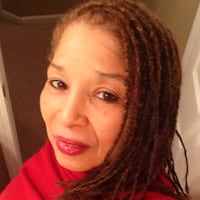She was one of the foot soldiers.
Ethel Mason's boots were firmly on the ground in the fight against segregation and racial injustice in Atlanta -- from being among the first black nurses to work on the "white side" of Grady Hospital in the 1950s, to driving students to lunch counter sit-ins and other protests, to helping to integrate a white southwest Atlanta neighborhood.
Mrs. Mason's determination to play a role in the Civil Rights movement was spurred by her upbringing in Union Springs, Ala., where, among other racial inequities, schools for blacks only went to 10th grade. Mrs. Mason had to move to Birmingham with an older sister to complete high school.
"Because of the prejudice she endured at that time, she fought and advocated to make things better, and she built that within us," said son Johnny Mason, a judge with the Georgia State Board of Workers' Compensation.
Ethel Feagin Mason, of Atlanta, who retired from Grady after more than 30 years as a nurse, died on Jan. 1 at Briarcliff Haven Health Center. She was 83. Services will be at 10 a.m. Saturday at Ebenezer Baptist Church -- Mrs. Mason's church home for nearly 60 years. Hanley-Shelton Funeral Directors is handling the arrangements.
Mrs. Mason moved to Atlanta to attend one of the first classes open to black women at the Grady Hospital School of Nursing. She graduated in 1952 and began work as a labor and delivery nurse at Grady.
While there, she met fellow Alabamian Johnnie Mason, who drove patients to Grady for Hanley's Funeral Home, which also served as an ambulance service for the black community. They married and became dedicated partners in the fight for civil rights. They often transported students -- sometimes in the funeral home hearse -- to sit-ins and protest marches.
They joined Ebenezer Baptist and held organizing meetings at their home that included Martin Luther “Daddy” King Sr., the Rev. Dr. Martin Luther King Jr. and Mr. Mason's good friend, A.D. King, the brother of Martin King. Mrs. Mason sang in the choir, alongside Dr. King's wife and his sister, Coretta Scott King and Christine King Farris, who recalled the good meals that Mrs. Mason prepared for the meetings.
"She was a very loyal and dedicated member of the church, and was always supportive of the King family," Mrs. Farris said.
The Masons had sons Johnny and Daldred and lived in the safe, close-knit Edgewood/Kirkwood area of Atlanta. In 1964, they moved to the all-white Cascade neighborhood in southwest Atlanta, where they endured racial violence and intimidation, the brothers recalled. When Mrs. Mason tried to register them at the neighborhood school, she was told they'd have to attend school in their old neighborhood. With the intervention of Daddy King, the boys were enrolled. They regularly faced taunting and fights, but Mrs. Mason helped guide them.
"When we got angry, she would preach nonviolence to us," said Daldred Mason, a minister.
Mrs. Mason, whose husband died in 1989, lived in her Cascade neighborhood for more than 50 years and became ‘mother' to many people. Nurse Lisa Tinch started caring for Mrs. Mason some 19 years ago when her health began to fail.
"As I got to know Mrs. Mason, I grew to love her," Ms. Tinch said.
A few years ago, Johnny Mason interviewed his mother on StoryCorps, the national oral-history project dedicated to preserving the everyday history and stories of Americans. She spoke of her time in the Civil Rights movement.
"It was uncertain and it was frightening," Mrs. Mason tells her son. "We didn't know what was going to happen or when. We depended on prayer and each other because back then we were really together."
Additional survivors include five grandchildren.
About the Author
The Latest
Featured


